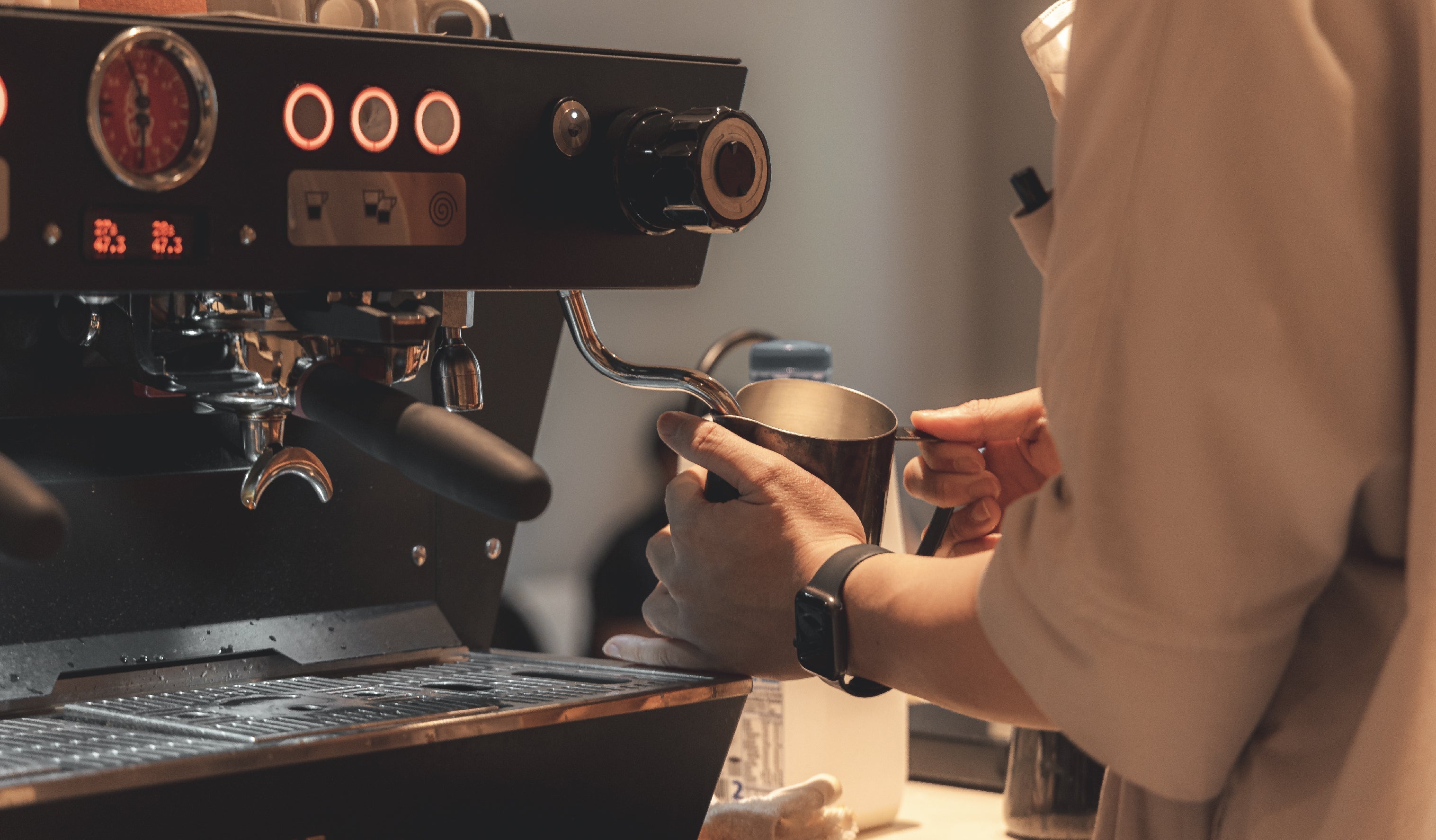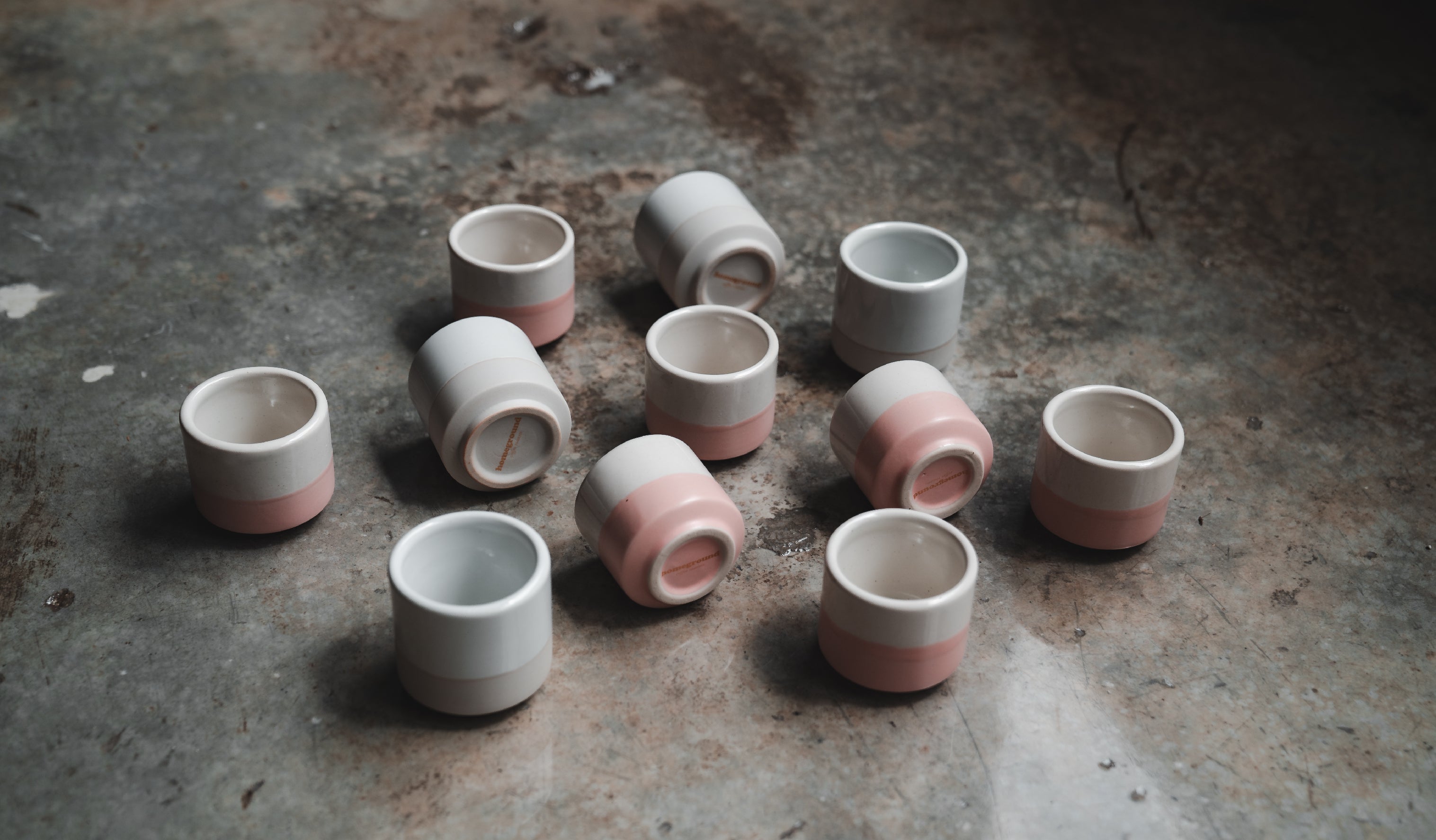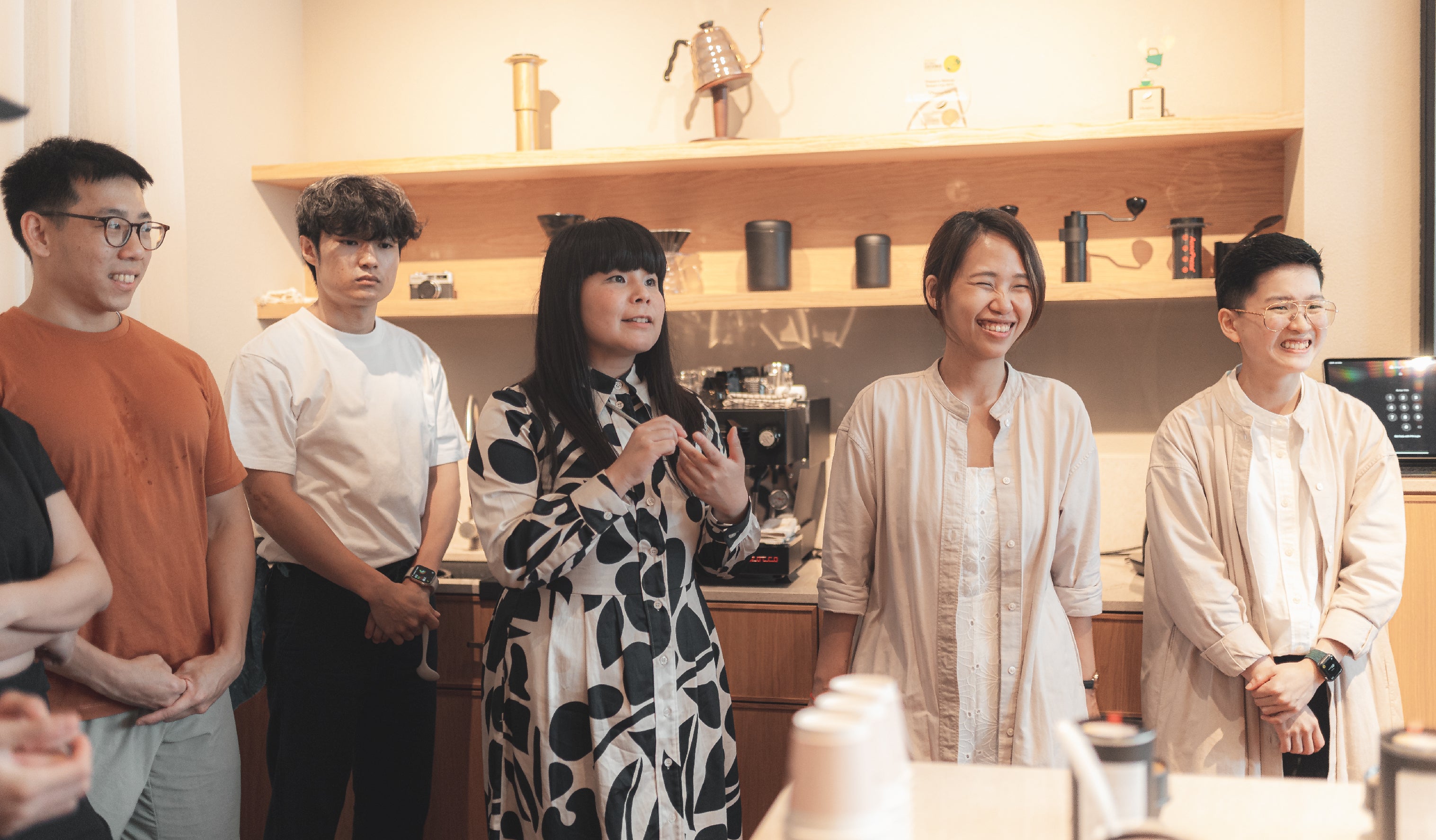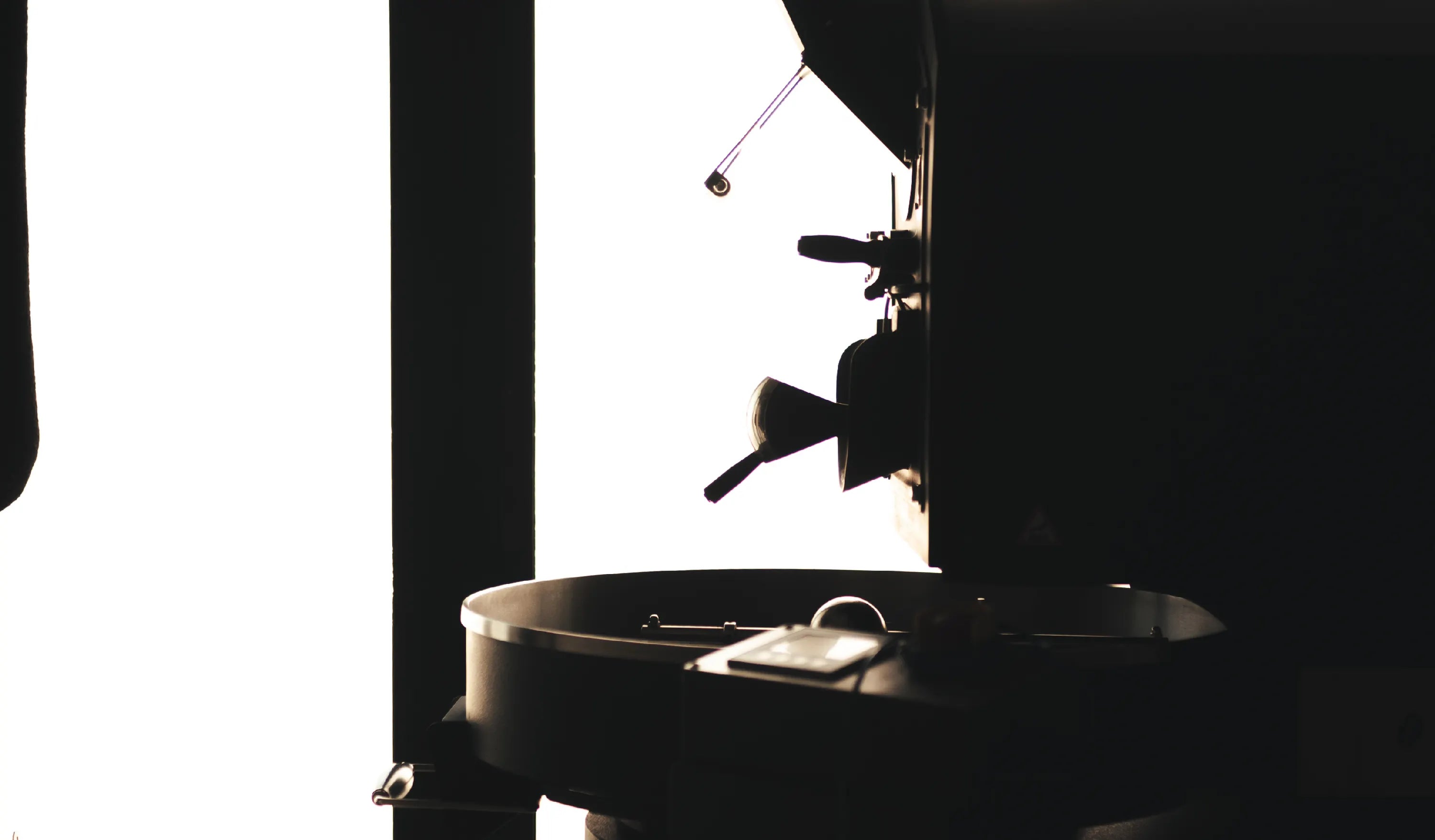Learn about the milk trend in the coffee industry through World Barista Competition.
Journal Article by Homeground Coffee Roasters - Specialty Coffee Roasters in Singapore
At the 2023 World Barista Competition in Athens, a historic change allowed competitors to use non-dairy milk for the first time. Despite this, most competitors stuck with traditional cow's milk - but with an interesting twist.
Many top baristas chose to concentrate their milk to enhance its sweetness and creaminess. They achieved this through two main methods while keeping the milk's natural properties intact:
- Fractional freezing and,
- Cryo-desiccation.

Understanding Fractional Freezing
Though commonly called "freeze distillation," fractional freezing is the more accurate term since no actual distillation occurs.
How It Works
Fractional freezing is simple: it uses the different melting points of milk and water. The most common technique is Block Freeze Concentration.
You will need
- A bottle of milk
- Container / Bottle
Steps to take
- Freeze the bottle of milk completely, we suggest you can do this overnight
- Turn the bottle upside down and collect as it thaws
- Ready to use
Why does it work and what are we trying to achieve here?
Milk melts before water because to its lower melting point. While this method requires minimal equipment, it's challenging to control both the thawing rate and final concentration.

The concentrated milk you get will have different proportions of ingredients compared to regular milk. This happens because milk's components - water, fats, carbohydrates, proteins, vitamins, and minerals - all thaw at different temperatures. For example, milk fats alone have melting points ranging from -40°C to 40°C.
Research shows interesting changes in the milk's composition after concentration. A study found that concentrated milk had more proteins but fewer carbohydrates and fats than the original -- by Camelo-Silva et al. (2022). While we're still studying how this affects coffee with milk taste, it likely creates noticeable differences.
The resulting milk composition shows some interesting changes. A scientific study of concentrated skimmed milk using Block Freeze Concentration revealed that as milk solids become more concentrated. You get more proteins but fewer carbohydrates and fats compared to regular milk.
| Analyses | Skimmed milk | Concentrated milk |
|---|---|---|
| Total solids (g/100 g) | 8.05 ± 0.22 | 10.27 ± 0.01 |
| Protein (g/100 g) | 3.15 ± 0.02 | 7.07 ± 0.40 |
| Fat (g/100 g) | 0.16 ± 0.01 | 0.18 ± 0.05 |
| Ashes (g/100 g) | 0.39 ± 0.03 | 1.29 ± 0.19 |
| Carbohydrates (g/100 g) | 4.35 ± 0.01 | 1.73 ± 0.01 |
Table 1: Physicochemical properties of skimmed milk and concentrated skimmed milk (Camelo-Silva et al., 2022)

What is Cryodesiccation?
Cryodesiccation, or freeze-drying, works differently. It freezes milk in a vacuum, allowing water to turn directly into vapor. This creates a powder with no water content.
This powder can be mixed with water, regular milk, or even plant-based milk to create concentrated milk. It offers precise control over concentration levels while maintaining the original milk's composition. The 2022 World Barista Champion Anthony Douglas used this method to create milk 1.8 times more concentrated than normal!
The main drawback? Cost. The specialized equipment needed costs thousands of dollars.
Is More Concentration Always Better?
Despite concentrated milk's benefits, its adoption faces practical challenges. While it creates creamier drinks, it's costly and operationally complex for coffee shops, especially in Singapore.
The technique requires precise espresso adjustments, including longer shots with higher ratios. The resulting drinks can also be overly filling.
As baristas experiment with both dairy and plant-based alternatives, research continues on how milk compounds, temperature, and fat content affect taste and foam stability. These developments showcase coffee's blend of art and science.
The Coffee experience with concentrated milk
Let's explore this from two different perspectives.
Consumer Perspective
Great coffee depends on multiple factors beyond steamed milk—grind size, brewing temperature, and other variables all play crucial roles.
Quality coffee emerges from careful experimentation and a deep understanding of extraction.
If you want to improve your coffee drinks at home, consider taking a barista course at your local coffee shop.
Barista Perspective
The pursuit of better coffee drives baristas to explore milk concentration techniques, whether using dairy or plant-based alternatives.
While alternative milks gain popularity, we're still uncovering new insights about traditional dairy milk's compounds, temperatures, and foam stability. Research confirms that fat content plays a key role in foam formation.
Just as there is an art to creating beautiful latte designs, there is equally a science behind it.
Read Also -- Coffee and Milk Balance and Plant-based Milks: Impact on Espresso Drinks and Singapore's Coffee Scene
Tags: Plant-based milk, dairy milk, Espresso-based drinks, Specialty coffee roasters in Singapore, Coffee competition, Best coffee in Singapore
Journal Archive

Milk in World Barista Competitions
An overview of milk concentration methods in coffee competition, focusing on freezing techniques that enhance milk's qualities for great coffee beverages.

How Coffee Cup Colours Affect Your Drinking Experience
Cross-modal perception of colours on the taste of coffee

Learning to enjoy more

Same Coffees Everywhere, All at Once
Why do local specialty coffee shops serve the same coffees?

A study of unexpected coffee production nations

A low down on using puck screens for espresso machines

